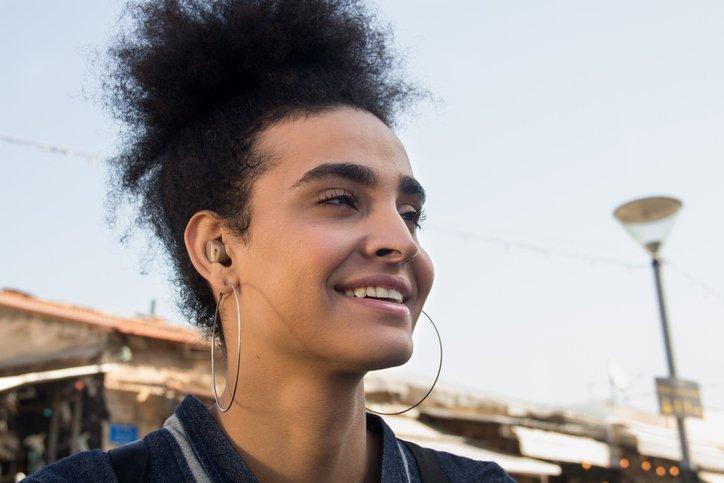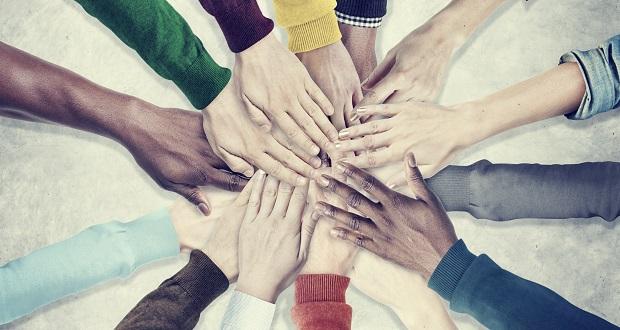
Sounds. Many sounds occur while traveling. Waves crashing. Leaves fluttering. Glasses clinking. Languages spoken. Coffee dripping. Planes landing. People chatting. Birds chirping. Pages flipping. Cars zooming. Sirens wailing. Guitars strumming. Alarms beeping. Cats meowing. Rain falling. Crowds clamoring. Drums beating. Music playing. Butterflies fluttering. Now, imagine you couldn’t hear them, or could only hear a little: How does this change your perspective of traveling? Pause to reflect ….
Did you think about how you could cope without your hearing? What you might miss out on because of not being able to hear? How about communication when you’re abroad?
Let me back up a bit. I belong to the deaf and hard-of-hearing community. As difficult and frustrating some moments of traveling can be for me, I enjoy immersing myself in different cultures, indulging in learning, and being able to fully explore where I have traveled to. You’re right in thinking that my approach to traveling may be different because my ears don’t work well.
When I travel, I tap into my other senses, and I recognize that for each of us this may be a different experience depending on what senses we are able to utilize. For me, I rely primarily on my sight to tell me the narrative when I travel — whether that means taking photos, standing in awe of a breathtaking view, seeing myriads of colors, reading body language, or retaining information through my eyes. Through my eyes, I can imagine what specific things might sound like, and creatively use my mind to inform me. Being able to smile with my eyes at someone when I know neither of us can communicate with the other, is an unspoken word or acknowledgement of, “I appreciate where I am and this moment I’m in.”
Going back to the questions I asked above, what might you do differently the next time you travel? How might you engage with someone who utilizes different senses than you? What other ways do you think that you’d be able to use to communicate with people you encounter in your travels? As you consider and reflect upon these questions, it is important to acknowledge the myriad of frustrations that these individuals might have faced while traveling.
Once, when traveling back to the Pacific Northwest, I got stuck in horrendous traffic on my way to the airport, which caused me to miss my flight. Unfortunately for me, they didn’t have any flights available that afternoon or evening, and the earliest flight they had was at 5:30 a.m. the next day. I remember dreading having to find a hotel to stay at nearby, and my mind started racing, overthinking about how I was going to get back to the airport in the morning.
Upon arrival at the hotel, I instantly approached the concierge and shared I needed to get to the airport in the morning. The first thing he suggested was a wake-up call, and I thought well, that won’t work, I can’t hear that. I then explained to the concierge about my disability and how I couldn’t hear for a wake-up call. My anxiety at this point was creeping in; was I going to need to stay awake all night to make sure I didn’t miss my flight?
After what felt like forever, we agreed upon a plan. My parents agreed to send text messages which were set onto vibrate to act as an alarm, and I also had set a vibrate alarm on my phone. There would also be someone to come by to the room at agreed upon times to knock on the door to see if I was awake. At first I remember expressing discomfort with this: How would I hear the knocks? Would this bother the other guests? The concierge assured me that they would continue knocking until they heard me respond and answer the door, which would only happen with my hearing aids on.
Morning came, and I made it downstairs to the shuttle and communicated with someone new to make sure that they’d get me to the right place. I got to the airport and was instantly overwhelmed again with the next step of my travel, and how I was going to get through security and arrive at my gate. How might the hotel or airport staff address the situation differently to ensure better accessibility?
During my visit to Guatemala, language barriers impacted me during my travels. On the last day of my visit, I was by myself after having spent time with my sister. Lengthy conversations were had about what this last day was going to look like as I was on my own. Conversation and advice revolved around topics like getting back to the hotel safely, being aware of my surroundings, not staying out past daytime, and double-, triple-, and quadruple-checking to make sure that my plan for getting to the airport was ironclad. Don’t wander without knowing where you are and remembering how you can get back to the hotel. Do the activities you’d like during the day but be mindful of your surroundings. I put in a couple of key phrases in Spanish onto my phone because my deaf accent made it challenging for Spanish speakers to understand my broken Spanish. I knew that I could just show them my phone.
I remember approaching the people at the hotel about being able to work with me in making sure that I would wake up on time and catch my airport shuttle. The hotel staff in the morning would be helping me to ensure that I got onto the right shuttle. Most of the shuttle drivers spoke Spanish, and it was hard to know if they’d be on time or not. I remember being extremely nervous about whether the shuttle was going to arrive. It did, but then I had to make sure that at the airport that everything I needed to do at customs was done correctly, that I was able to find my gate, do a bit of browsing/shopping to utilize the last of my Guatemalan currency, and that I could understand if there were any changes to my itinerary.
Before I could do any of that, I realized that several airport staff were informing me that because I was early, I couldn’t check in or do anything yet. I admit, this was challenging for me to understand. All that I could pick up on through their body language was that I couldn’t check in, but I didn’t understand why. Eventually I saw a sign that I was able to translate into English that said that check-ins happened after 7 a.m. My sister, who had flown the day before, told me that I could utilize Wi-Fi at the airport to check in with her via Facebook Messenger if I needed anything or for her to help navigate me throughout the airport as she had just experienced it the day before. Next stop: my layover in Mexico City, which is a story for another time.
As you read these anecdotes, you can probably detect frustration, a ton of planning, considering safety considerations for myself as both a woman and a deaf individual, and being able to successfully travel and accomplish things despite not being able to hear. Traveling while not being able to hear is layered. Moments of sheer frustration, high emotions, experiencing microaggressions around ableism, having to over-plan, providing solutions, and relying on others have always occurred while I travel. When you encounter deaf or hard-of-hearing people in your travels, be creative with your approaches, and think about how to engage through other types of communication, to provide a well-rounded experience for them. Have tools and solutions on hand so that they can have a break from all the planning and work they need to put in to making sure they have general access to things that others can take for granted.
If at all possible, reflect upon this, what you might do differently next time, and know that not every traveler is the same.



















I’ve known Tara her entire life. She’s rather incredible for all the things she has battled and overcome. Love you Tara!